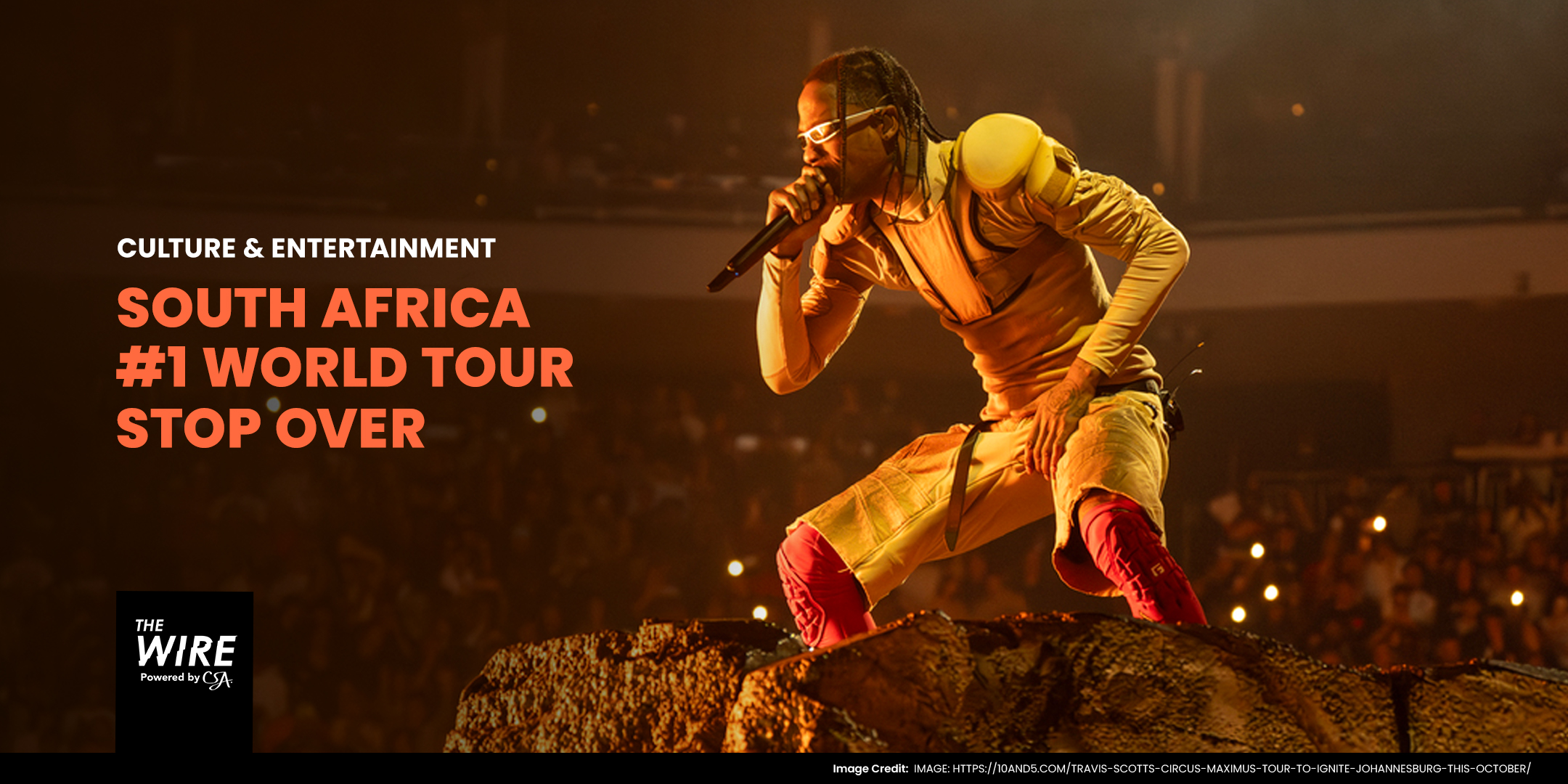- Chris Brown’s Breezy Tour injected nearly R900 million into Gauteng’s economy
- 75,000 fans attend Travis Scott’s concert
- Ultra South Africa 2025: fastest and most successful ticket sale in its history
- International artists amplify tourism and youth jobs.
- Top tours unlock high-impact marketing opportunities
The touring of top hip hop and R&B artists in South Africa is increasingly significant, reflecting the country’s appetite for global urban music culture and its burgeoning market potential. This trend is underscored by notable artists like Chris Brown, Lauryn Hill, Wyclef Jean, Travis Scott, Keyshia Cole and Gunna drawing both local and international attention to South Africa’s vibrant music scene.
Not to be left out, on the Dance and Electronic front, this summer’s Festival and Party Circuit includes Berlin’s renowned collective Keinemusik, British electronic visionary Four Tet, to Australian singer-songwriter Ry X and Canadian producer Blond:ish, brought to South Africa by leading entertainment agency Anything Goes, who continues to cement South Africa’s status as a destination for the world’s top live performers. April 2026 sees the epic Electronic and Dance event Ultra take place in Johannesburg and Cape Town with a leading line-up the very best international acts.
The Market for Hip Hop, R&B, Dance and Electronica in South Africa
South Africa’s music landscape has evolved into a dynamic hub for entertainment, with a strong appetite for hip hop, R&B Dance and Electronica. According to industry insights, South Africa is becoming Africa’s leading destination for touring international artists, driven by its sizable, youthful, and culturally diverse population with high digital engagement. Local artists in these genres are also gaining prominence, contributing to the growth of a robust live music economy. This development is further reinforced by the country’s reputation as an emerging hub for music production across several genres, with local artists increasingly influencing the global scene.
Within this context, the South Africa’s hip hop and R&B concert market is a significant and growing segment within the country’s larger music industry, which is the largest in Sub-Saharan Africa. Recent data indicates that South Africa’s overall music industry revenue topped around R1.5 to over R2 billion rand in recent years, covering recording, publishing, and performance rights. Although specific concert revenue figures for hip hop and R&B alone are not always isolated, live events, including major tours by international urban artists, contribute substantially to the local music economy.
Notably, Chris Brown’s Breezy Tour in 2024, attracted over 180,000 fans to FNB Stadium across two nights, injecting an estimated R900 million (around $48 million) into Gauteng’s economy and creating over 6,000 temporary jobs.
Travis Scott’s 2025 concert on his Circus Maximus Tour in South Africa set a historic record with over 75,000 fans attending his performance at Johannesburg’s FNB Stadium, making it the largest solo rap concert ever held in the country. This massive turnout included fans from across South Africa and neighbouring countries, underscoring Johannesburg’s status as a music hub on the continent.
On the Dance and Electronic front, our very own ULTRA South Africa has become a cultural phenomenon since the very first edition in 2014. Over 400,000 fans have danced under the ULTRA South African sky with attendees from all 195 countries, making it one of the most globally diverse events in the country. Mozambique is the second most represented country by attendees, proving that ULTRA fever knows no borders. With multiple stages, cutting-edge production, and a genre-diverse lineup, ULTRA South Africa remains Africa’s biggest electronic music festival. It celebrated a 10th anniversary with record-breaking ticket sales, marking it as the fastest and most successful ticket sale in its history.
The numbers underscore how South Africa’s entertainment sector is fast emerging as a major engine for tourism growth and youth employment.
The Culture Shift Effect
Touring top-tier artists serves more than just commercial gain; it solidifies South Africa’s position as a cultural epicentre for Music, promoting street culture, fashion, and lifestyle associated with these genres. These tours generate substantially in economic activity through ticket sales, merchandise, and tourism, while also providing valuable exposure for local artists and brands. They serve as catalysts for cultural exchange, inspiring local talent and fostering collaborations that elevate the entire music ecosystem.
Signals to Brands and Brand Managers
South Africa is a strategic cultural nexus. For brands and marketers, it offers an unparalleled opportunity to embed themselves within the fabric of global urban culture and to engage with its highly influential youth segments in meaningful ways. This movement underscores the country’s rising importance on the international stage and signals the need for brands to capitalize on these culturally significant moments for authentic engagement and long-term brand positioning.

